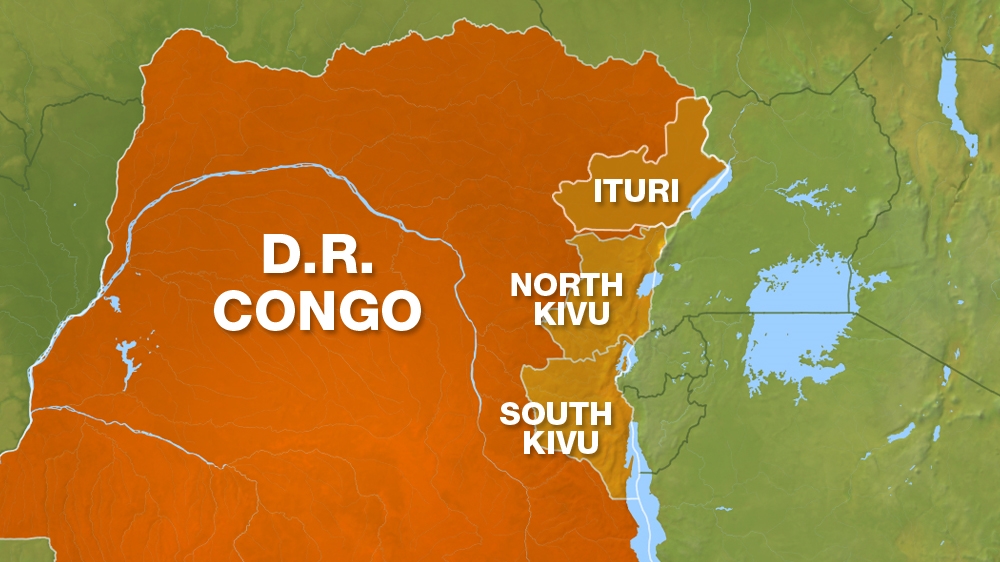
Two Ebola cases have been confirmed in Congo’s South Kivu region
KINSHASA, Aug 17 (NNN-AGENCIES) — A woman and her child were the first two cases confirmed with Ebola in Congo’s South Kivu region this week, opening a new front in the fight against the outbreak.
Health officials said that the latest cases were more than 700km south of where the outbreak was first detected.
Ebola has killed at least 1,900 people in Democratic Republic of Congo over the past year. This is the second biggest toll ever and militia violence combined with local resistance have made the outbreak harder to contain.
The 24-year-old woman had been identified as a high-risk contact of another Ebola case in Beni, more than 700km north, last month, according to South Kivu’s provincial government on Friday.
She travelled by bus, boat and road with her two children to Mwenga, in South Kivu, where she died on Tuesday night, according to a statement by Jean-Jacques Muyembe, the director of the DRC’s National Institute for Biomedical Research.
The woman had been vaccinated, he said. The Ebola response team, headed by the Congolese government, identified 120 contacts and vaccinated 20 on Thursday, he added.
The latest cases show the difficulty of containing the latest Ebola outbreak, which has continued to spread in eastern Congo despite the deployment of a highly effective vaccine.
South Kivu Governor Theo Ngwabidje told reporters that teams from the national anti-Ebola coordination campaign had arrived to provide support to health officials in the area.
Some 2,800 people have been infected during the DRC’s latest Ebola outbreak, its tenth to date, with more than 1,900 of those cases proving fatal.
Almost all of the cases have been confined to areas in North Kivu and Ituri provinces, but in June, three people from one family died in neighbouring Uganda from Ebola after returning from the DRC via an unofficial crossing point.
The epidemic is now the second-worst outbreak of its kind on record, trailing behind a major eruption of the virus in West Africa during 2014-2016 which killed more than 11,300 people as it surged through Guinea, Sierra Leone and Liberia.
Last month, the WHO declared the outbreak a public health emergency of international concern just days after the virus spread to a major urban hub for the first time.
Efforts to end the epidemic have been repeatedly hampered by a “perfect storm” of regional insecurity in eastern DRC and deep community mistrust over the crisis and towards authorities.

Amid the unrest, health workers have vaccinated nearly 200,000 people. The vaccine – produced by US pharmaceutical giant Merck – is experimental but is estimated to be 97.5 percent effective. According to the WHO, it may protect a person for up to 12 months. — NNN-AGENCIES





